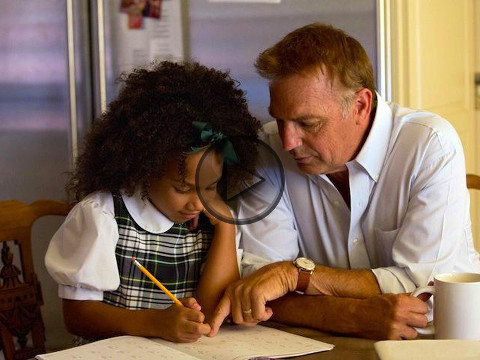
Black or White: an honest look at racism
|
Getting your Trinity Audio player ready...
|
{source}<iframe style=”float: left; border: 1px solid #000000; background-color: #C0C0C0; padding: 2px; margin: 10px; -moz-border-radius: 3px; -khtml-border-radius: 3px; -webkit-border-radius: 3px; border-radius: 3px;” width=”400″ height=”225″ src=”https://www.youtube.com/embed/yqlE-7PP7Ho” frameborder=”0″ allowfullscreen></iframe>{/source}I wanted to see the new movie, starring Kevin Costner and Olivia Spencer. I had read a few interviews that led me to believe it was going to be very good. Don’t allow the rating of “two stars” to deter you from seeing Black or White – it was a smart movie, like literature in film.
The movie is a thought-provoking, honest look at the issue of racism. My summary: Black or White is a film that explains racism as a weakness of everyone’s fallen human nature. It is a weakness common to man and every human being has the ability to choose how to live with that weakness.
Racism has been a complex, divisive issue in our country since its foundations. I was a young girl when I watched Roots, and I felt ashamed of the way our country had treated the human beings they called slaves. I loved The Help, both the book and the movie because it showed that racism would not be ended with changed laws, but by changed thinking. Black or White isn’t a movie about racism in the past, it is about the racial issues of the present. It isn’t about the shame of one race, it is about the shame of every race. Every human being struggles with racism, including you and me.
Miriam-Webster defines racism as: a belief that race is the primary determinant of human traits and capacities and that, racial differences produce an inherent superiority of a particular race. Scripture warns against racism in Philippians 2:3-4: “Do nothing out of selfish ambition or vain conceit, but in humility consider others better than yourselves. Each of you should look not only to your own interests, but also to the interests of others.”
Mike Binder decided to write a screenplay that dealt with the issue of racism as honestly, and as fairly as he could. Kevin Costner wanted to play the lead role because he appreciated the candid way his character was portrayed. In fact, he and his wife personally invested in this movie because they thought it was an important and timeless message. Binder created the characters, each with their personal prejudices and the resulting choices.
A strong theme in this movie is the power of truth. When the characters stop trying to label the flaws of others, and admit that everyone is flawed, they are able to choose what is best. The movie has been critiqued as ending too softly. One review stated: “That’s the point at which Black or White surrenders to mawkish Hollywood convention and is much the worse for it. Sad to say, this is a movie that is ultimately afraid of its own shadow.” I disagree with the reviewer. I thought the movie ended proving that when everyone is honest about his or her own flaws, and when everyone makes the choice to put another ahead of themselves, the best solution can be found. In other words, I think the movie proves the truth of Philippians 2:3-4.
This is not a Christian movie and it does not illustrate Christian family values. Interestingly, it does illustrate the power of morality. The answer to racism in our world will not be found in governmental legislation. I believe much of what is happening out of Washington is increasing the sense of conflict, not addressing it.
I like this movie, not because it promoted my Christian values, but because it revealed the strength of choosing to live with moral values. Hollywood has influenced the moral compass of the world, often in some dark and sinful ways. I think those involved with this movie wanted to use their influence to raise the standards of our culture. Be cautious about taking children to this movie. There is bad language, drinking, drug use, and other mature subjects. But, it is a movie that teaches the importance of having a moral compass and I applaud that effort.
If you choose to see this movie, I have an assignment. A young man by the name of Mpho Koaho plays the character of Duvan Araga, a math tutor. Pay attention to the lines and the life of this character. The single best commentary on the issue of racism is found there. Duvan has the best reasons to hate, to rage and to live with prejudice – but has chosen to live without that darkness. I didn’t read a review that even mentioned his character – which means those reviewers missed the central point of the movie.
The ultimate answer to racism is for everyone to live as Paul told the Philippians to live: “Do nothing out of selfish ambition or vain conceit, but in humility consider others better than yourselves. Each of you should look not only to your own interests, but also to the interests of others.” Can anyone say they do not struggle to obey that verse?
Black or White illustrates the truth of Scripture on the subject of racism. I bet very few people will realize that. I hope we will have the chance to tell them.
{jcomments lock}
